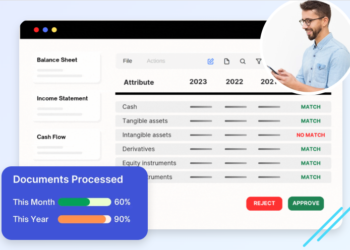Strong leadership can be the difference between a care team that thrives and one that struggles. In an environment where every decision impacts lives, your ability to lead with confidence, empathy, and clarity is critical. But leadership in the care sector isn’t just about managing people—it’s about inspiring trust, fostering collaboration, and ensuring the highest standards of care for those who depend on it.
Care leadership training equips you with the tools to figure out the unique challenges of this sector. Whether you’re managing a team in a care home or overseeing community support services, the right training helps you build resilience, improve communication, and develop a leadership style that motivates others. It’s not just about learning to lead; it’s about leading in a way that transforms care delivery and makes a lasting impact.
Care Leadership Training
Care leadership training equips you with advanced skills to figure out the complexities of leading in the care sector. You face diverse challenges, from managing staff morale to ensuring exceptional service standards. Training programmes address these dynamics, helping you develop approaches tailored to individual needs and organisational goals.
You delve into critical areas like emotional intelligence, which might shape how you engage with teams, support staff wellbeing, and manage crises effectively. Active listening and impactful communication also play pivotal roles, shaping trust and fostering stronger professional relationships. In caring environments, your ability to interpret verbal and non-verbal cues can redefine collaboration.
You will explore strategic management techniques to address resource limitations that can disrupt care delivery. These techniques involve prioritising tasks effectively, allocating resources with precision, and establishing systems to enhance team efficiency. Leadership training bridges gaps between operational practices and compassionate care delivery, offering frameworks to achieve both.
You examine how to lead by example, setting the tone for accountability and ethical decision-making. This focus aligns decision-making processes with the specific values of care work. Leadership programmes often include practical scenarios, letting you refine your approach in realistic, high-pressure situations.
Reflection shapes a large part of care leadership training. You evaluate your leadership style, identifying how your behaviour influences team performance and care outcomes. This might involve tailored feedback from facilitators or peer discussions that challenge your assumptions and refine your perspective.
Care leadership training also tackles maintaining resilience in a high-pressure environment. You will learn resilience-building strategies that prevent burnout, enabling you to support your teams effectively. Training provides the tools to adapt and respond thoughtfully, even when circumstances shift unexpectedly.
Thought-provoking questions emerge during training, prompting you to consider how your actions resonate with both teams and those in your care. How does your leadership inspire, or where could it change? Through considering these queries, you actively enhance your impact.
Key Components Of Effective Care Leadership Training
Care leadership training provides essential skills for managing teams and maintaining high standards in care environments. It blends practical strategies with personal development to ensure leaders address challenges effectively.
Communication And Interpersonal Skills
Communication defines your ability to engage teams and clients effectively. You will find that active listening, clear articulation, and non-verbal cues, like respecting personal space or maintaining eye contact, shape relationships. Training focuses on structuring discussions for clarity, resolving misunderstandings, and promoting open dialogue. By learning to adapt your communication style, you can encourage trust and collaboration. Additionally, addressing differences within diverse care settings strengthens interpersonal connections, ensuring inclusive leadership that resonates across the team.
Decision-Making And Problem-Solving
Effective decisions balance urgency, impact, and ethical considerations. Leadership training equips you with frameworks, such as prioritisation matrices or root cause analysis, to evaluate options under pressure. When faced with care-related crises, quick problem-solving is vital. You are encouraged to assess risks and involve stakeholders to identify the best solutions. Practical exercises, like evaluating case studies, prepare you for real-world challenges. Your ability to remain objective, even in emotionally-charged environments, significantly improves outcomes for service users and your team.
Emotional Intelligence And Empathy
Training sharpens your emotional awareness to manage team dynamics and patient interactions with greater sensitivity. Self-reflection activities reveal your emotional triggers, helping you control responses under pressure. You will explore empathy by understanding the lived experiences of service users. Empathy drives rapport, fosters trust, and ensures emotional support aligns with care values. Recognising the feelings and perspectives of others transforms relationships, creating harmony within teams and instilling confidence in those you support. This holistic approach builds a compassionate leadership foundation.
Benefits Of Care Leadership Training
Care leadership training strengthens your ability to lead effectively in the demanding care sector. With targeted skill development, you gain tools to inspire teams and uphold exceptional service standards.
Improved Team Performance
Your leadership shapes how your team functions, and training refines this influence. Through enhanced communication techniques, you’ll foster collaboration and reduce misunderstandings. Leadership training equips you to address conflicts promptly, balancing fairness with decisiveness. In cultivating an inclusive environment, you might notice stronger engagement and morale. Sessions often focus on active listening and clarity, giving you frameworks to unite diverse team perspectives. As a result, your group cohesiveness improves, leading to consistent, higher-quality contributions.
Enhanced Patient And Client Care
When you lead with a stronger sense of empathy and purpose, care delivery benefits directly. Focused training helps you align team efforts with patient-centred priorities, ensuring day-to-day actions reflect compassionate values. You’ll develop strategies to identify unmet client needs, adapting swiftly to provide personalised solutions. With resilience techniques, you can manage pressure thoughtfully, maintaining consistent service even during challenging scenarios. As a result, care recipients experience higher satisfaction, reinforcing trust in your team’s abilities and professionalism.
Challenges In Implementing Care Leadership Training
Developing care leadership skills often encounters several obstacles that disrupt progress. You might face resistance from staff members who feel undervalued or overwhelmed, particularly if training seems like an additional burden rather than an opportunity for growth. In the case that leaders fail to communicate the purpose and benefits clearly, scepticism can undermine the programme’s impact.
Securing time for comprehensive training within an already demanding care environment often becomes problematic. Balancing the needs of clients, ensuring continuity of service, and dedicating resources to training sessions require careful negotiation. You will find that without proper scheduling, conflicts can arise that hinder engagement and diminish the effectiveness of training.
Cost limitations frequently surface as a barrier. Care organisations often operate under strict budgets, leaving programmes vulnerable to cuts or insufficient funding. High-quality training might seem unattainable when financial constraints overshadow developmental priorities, reducing access to valuable resources and tools.
Cultural resistance within teams can also obstruct progress. Leaders implementing new strategies may encounter workplace habits deeply ingrained in the organisation’s routines. When you introduce change, it may disrupt a sense of stability, especially if staff perceive new approaches as criticism of existing efforts.
Measuring the success of leadership training brings its complexities as well. You might struggle to assess the real-world application of these skills after the programme ends. Outcomes like improved team performance or enhanced client care take time to manifest, making immediate feedback challenging to obtain.
Adapting training content to meet diverse leadership needs proves equally demanding. Differences in experience, personality, and responsibilities can make generic courses ineffective. Tailored solutions take extra time but work more effectively in creating results aligned with the unique demands of care environments.
Lastly, embedding learned principles into day-to-day practices demands continuous effort. Without leadership reinforcement, you risk participants reverting to old habits under pressure. Consistent follow-up, mentor support, and organisational commitment become necessary to sustain long-term transformations.
Strategies For Successful Care Leadership Training Programs
When you start to reach advanced qualifications like the ‘lead adult care worker level 3’ diploma, you will be able to start Identifying clear objectives early, and set the tone for your training programmes with experience. When you outline what you want to achieve, like improving communication techniques or cultivating emotional intelligence, you ensure efforts are focused. Without precise goals, your training might drift without direction. Aligning these aims with the challenges in your care environment makes the programme particularly impactful.
Involving your team actively during the training process promotes engagement and long-term retention. Encouraging discussions, role-playing, or problem-solving exercises allows participants to connect theory with their daily responsibilities. You might consider assigning real-world scenarios for them to apply practical concepts immediately. Active participation strengthens the connection between leadership principles and care delivery outcomes.
Customising the content ensures relevance and motivation. Off-the-shelf training plans can overlook specific challenges within your care setting. Instead, tailoring programmes to reflect your organisation’s culture or priorities promises better adoption of strategies. You could include case studies based on familiar situations, highlighting lessons directly applicable to your team’s experiences.
Providing tools for self-assessment and reflection remains essential. Offering opportunities to evaluate their leadership style encourages participants to spot areas for improvement. Guided reflections or journal prompts could help participants track progress and adapt their approach as they grow. This habit of self-awareness enhances accountability and builds practical leadership resilience.
Emphasising ongoing learning fosters sustainable growth. Leadership practices evolve with changing challenges, so your programme should focus on continuous development. Creating opportunities for further training or peer mentoring fosters a culture of shared learning. You might explore quarterly workshops, webinars, or team coaching to maintain momentum.
Integrating feedback mechanisms throughout the programme keeps it adaptive and responsive. Gathering input from participants helps you refine methods and content to ensure they’re meeting the needs of your care environment. Regular surveys, open discussions, or anonymous feedback forms might uncover untapped insights to strengthen future initiatives.
Building support networks amplifies success. Leaders figuring care environments benefit from connections with peers facing similar challenges. Facilitating discussion forums or networks lets participants exchange strategies and experiences. These relationships lead to collaboration, shared solutions, and collective advancement within the care leadership framework.
Final Thoughts
Care leadership training offers a transformative pathway for enhancing leadership capabilities in a sector that relies on compassion, resilience, and collaboration. By equipping you with essential skills and strategies, it empowers you to figure out challenges, inspire teams, and uphold exceptional care standards.
Investing in this training not only strengthens your leadership but also fosters a positive, patient-centred environment where staff and service users thrive. With the right approach and commitment, you can drive meaningful change and make a lasting impact on the quality of care delivered.






